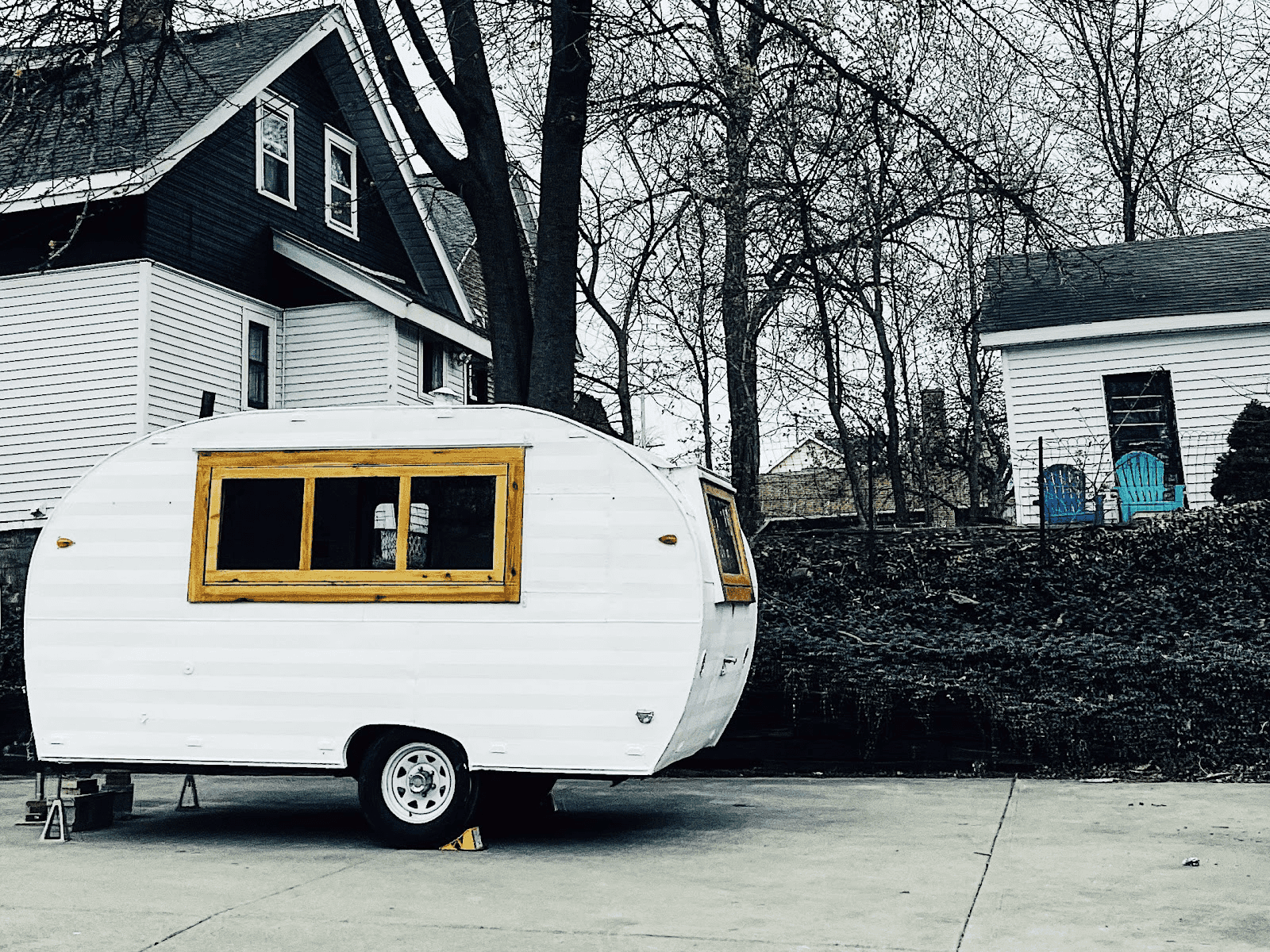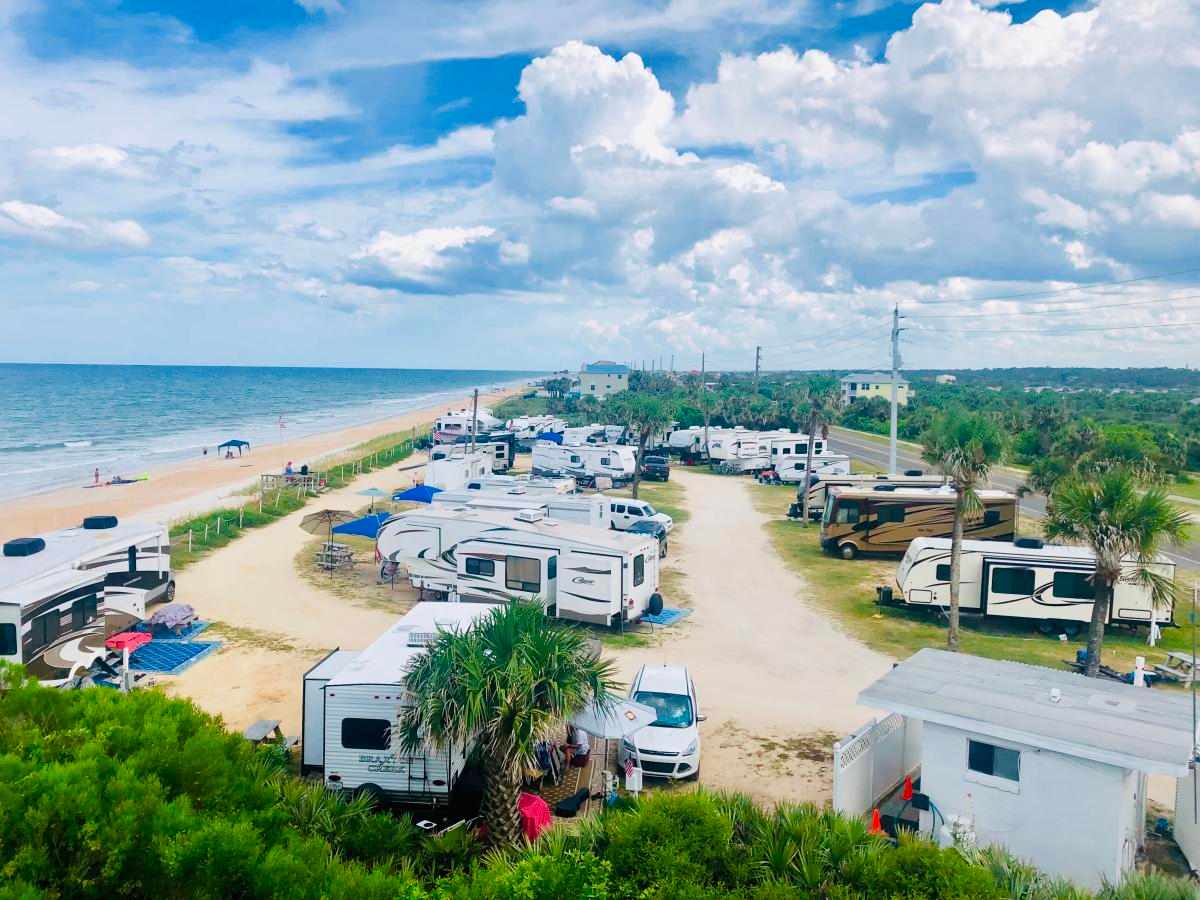For many families, roadschooling is the key to freedom. It is what allows them to get out onto the road and live the life of their dreams while giving their children an incredible and unique education. Does this sound like something you’d enjoy? Then roadschooling might be for you!
Not sure what roadschooling is or how to begin such a journey? In this article, we will explore the idea of roadschooling in order to help you get a better understanding of what exactly roadschooling is and how to go about trying it.
Test Roadschooling With These RVs For Rent Near You
What is Roadschooling?
Let’s start at the very beginning by explaining what roadschooling is. Essentially, roadschooling is exactly what it sounds like: school on the road. Usually, this term refers to families who live and travel in an RV or van and homeschool their kids as they travel. These traveling homeschoolers use the world as their classroom, finding learning opportunities as they explore, adventure, and discover.
Some traveling homeschoolers use a traditional curriculum and spend part of their day sitting down doing book work. Others ditch the idea of traditional school work entirely and choose the unschooling route, immersing themselves entirely in their adventures and interests and learning from everyday life. That said, most roadschoolers choose a middle ground, doing some foundational school work while using experiences to enhance and build upon what they learn from books.

No matter which route a traveling homeschooler might choose, roadschooling is an excellent way to ensure memorable, unique, and fun educational experiences and plenty of opportunities for thinking outside the box and problem solving.
About Roadschooling Laws
Many parents worry that roadschooling may not be entirely legal. Traveling homeschoolers everywhere will assure you that it is indeed completely legal. That said, you will want to familiarize yourself with roadschooling laws before you hit the road.
Because roadschooling is classified as homeschooling, roadschooling laws are the same as homeschooling laws. That said, these vary from state to state, leading those who are new to roadschooling to wonder, “Which state’s homeschooling laws should I follow?”
Generally speaking, you follow the homeschooling laws in your domicile state (the state where you register your car and renew your license). That said, it is important to note that if traveling homeschoolers spend more than 30 days at a time in a particular state, they should follow the homeschooling laws in that state for the duration of that stay. In order to avoid trouble, we recommend avoiding stays longer than a month in a state that is not your domicile state.
If you find that your domicile state has very strict homeschooling laws that are difficult to adhere to while traveling, and if you plan to be on the road long-term, it might be worthwhile to consider changing your domicile to a state with more relaxed homeschooling laws. Many people choose to domicile in Texas for this reason, but Florida can also be a good choice if you use an umbrella school.

Tips for Incorporating Education into Your Travels
Okay, now that you know the roadschooling laws and can jump into being traveling homeschoolers legally, we’re here to give you some of our favorite roadschooling tips and tricks.
Maintain Internet Access Whenever Possible
Having internet access is a game changer when roadschooling. It allows you to find printable worksheets, search for cool field trips, discover videos on a topic of interest, and download new reading material.
Fortunately, it is becoming more and more possible to stay connected no matter where you roam. Cellular hotspots and Starlink are two great options for ensuring you have internet access while roadschooling.
Take Advantage of Online Learning Options
Put that internet access to good use by taking full advantage of the many online learning options that are out there these days!
Many states offer free online public school programs that are ideal for those looking to continue traditional schooling as they travel. Meanwhile, resources such as Outschool and Khan Academy can be used by anyone to keep on learning while traveling.
We especially love that online curriculums and classes don’t require many physical materials, making them ideal for tiny living.
Choose Educational Trip Itineraries
Obviously, you will want to plan trips that involve educational stops along the way. Museums are a great start and can offer a whole wealth of interesting information on a variety of topics. National parks road trip itineraries (like this itinerary to see Utah’s “Mighty 5”) are another top pick and can help kids learn about geology, history, and a whole lot more. We also appreciate zoos, aquariums, historic sites, and state parks, as all present excellent opportunities for learning.
Involve the Kids in Your Planning
Want your kids to be excited about your travel plans and learn something new at the same time? Involve them in the planning process.
Let them help you decide where to go and what to do. Involve them in the budgeting and time management required to plan a successful trip, and let them see the places you’ll visit on a map. You might be surprised how much they pick up from joining you in the planning.
Invest in Reciprocal Memberships
Don’t think you can afford all of the educational stops along the way? We totally get it. Admission fees can really add up.
The best way around this is to invest in reciprocal memberships. The “America the Beautiful” national parks pass is a must-have pass that will get you into all national parks and many other public lands free-of-charge for a whole year. Meanwhile, reciprocal museum and zoo programs such as ASTC, AZA, and NARM will help you access other attractions along the way. Of course, free attractions are also available in many places!
Note: Fourth graders can get a free “America the Beautiful” pass for that year!
Read, Listen, and Watch
Media can be an incredible way to add to your roadschool experience. Read books and watch documentaries to expand upon what you learn when visiting new places, and listen to audiobooks and educational podcasts on long drives.
It’s also a good idea to encourage your kids to read by giving them an easy way to access fresh reading material. The Libby app (along with a library card) on a Kindle Fire is great for this. Epic and Scribd are also good options.
Make Use of Junior Ranger Programs
We already mentioned that we love national parks for traveling homeschoolers. One of the things we love most about roadschooling in these parks? The Junior Ranger programs.
These programs are available at every NPS site, as well as some state parks. Most involve reading and completing a fun activity book. Some also require you to attend a ranger program and/or go on a hike. Once your roadschooler completes the required activities, they will be sworn in as a Junior Ranger and given a nifty little badge to wear.

Attend Talks and Educational Programs
The aforementioned NPS ranger programs are an absolutely awesome way to learn about the parks and sites. Many state parks offer similar programs, and a lot of museums and zoos have docent and zookeeper talks (respectively) throughout the day. Making an effort to attend these talks and programs will make your educational field trips much more engaging.
Head to Roadschooling Events and Meetups
Many parents find themselves feeling concerned about how their children will make friends while out roadschooling. Fortunately, this is not something you need to worry about. By heading to events hosted by Fulltime Families, Republic of Nomads, or Xcapers, you will find other roadschooling families who will be happy to meet up or caravan and form deep connections.
Watch for Specialized Camps and Workshops
One super cool thing about roadschooling is that you can seek out special camps and workshops that cater to your child’s interests. When the whole country is your backyard, it’s relatively easy to go pretty much anywhere if that place can offer the right learning opportunity, and it’s not uncommon for traveling homeschoolers to plan their route around specific camps.
Look Around; Learning Opportunities are Everywhere
Our number one roadschooling tip? Don’t get too wrapped up in schooling your kids and making sure they know all the “right” things. Instead, relax and let the world school your whole family! There are learning opportunities around every corner, and the things you’ll learn in your day-to-day life on the road are far more valuable than what is usually being taught in a classroom.
Try Roadschooling Today!
Ready to join the other traveling homeschoolers who are already enjoying the benefits of roadschooling? Why not give it a try before committing entirely? You can rent an RV during summer break and take the kids on a quick roadschooling adventure to see what they think. Be sure to choose an RV with WiFi to maintain internet connectivity like we discussed before, and then choose an itinerary with some awesome educational stops.
If your family decides it isn’t for them, then no harm is done and you get a cool vacation out of the deal. We’re betting they love it though! In that case, you can start looking into ways to get your family on the road full time, and all of these tips and what you learn from your summer roadschooling adventures will help you get started!








